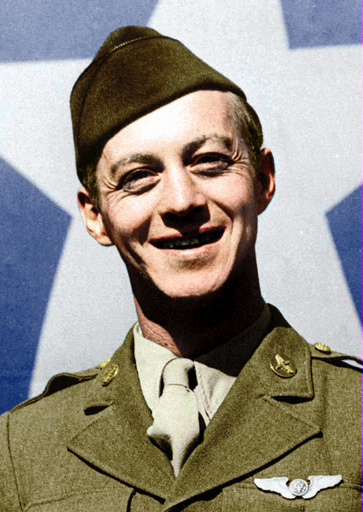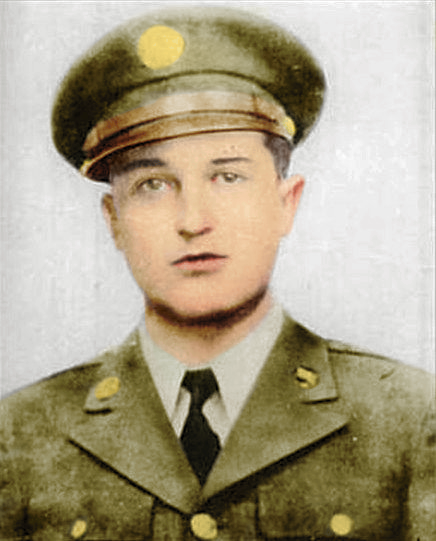SGT Maynard Harrison “Snuffy” Smith, 31, USAAF (1911–1984)
423 BS, 306 BG (H), 8th Air Force
Brest, France
May 1, 1943
Presented July 15, 1943

The President of the United States of America, in the name of Congress, takes pleasure in presenting the Medal of Honor to SGT Maynard Harrison Smith Sr., United States Army Air Forces, for conspicuous gallantry and intrepidity in action above and beyond the call of duty while serving with the 423rd Bombardment Squadron, 306th Bombardment Group (H), 8th Air Force in action on a bombing mission to Brest, France, May 1, 1943.
The aircraft of which SGT Smith was a gunner was subjected to intense enemy anti-aircraft fire and determined fighter airplane attacks while returning from a mission over enemy-occupied continental Europe on May 1, 1943. The airplane was hit several times by anti-aircraft fire and cannon shells of the fighter airplanes, two of the crew were seriously wounded, the aircraft’s oxygen system shot out, and several vital control cables severed when intense fires were ignited simultaneously in the radio compartment and waist sections. The situation became so acute that three of the crew bailed out into the comparative safety of the sea. SGT Smith, then on his first combat mission, elected to fight the fire by himself, administered first aid to the wounded tail gunner, manned the waist guns, and fought the intense flames alternately. The escaping oxygen fanned the fire to such intense heat that the ammunition in the radio compartment began to explode, the radio, gun mount, and camera were melted, and the compartment completely gutted. SGT Smith threw the exploding ammunition overboard, fought the fire until all the firefighting aids were exhausted, manned the workable guns until the enemy fighters were driven away, further administered first aid to his wounded comrade, and then by wrapping himself in protecting cloth, completely extinguished the fire by hand. This soldier’s gallantry in action, undaunted bravery, and loyalty to his aircraft and fellow crewmembers, without regard for his own personal safety, is an inspiration to the U.S. Armed Forces.
